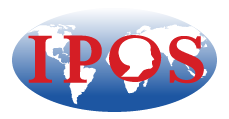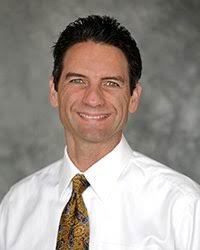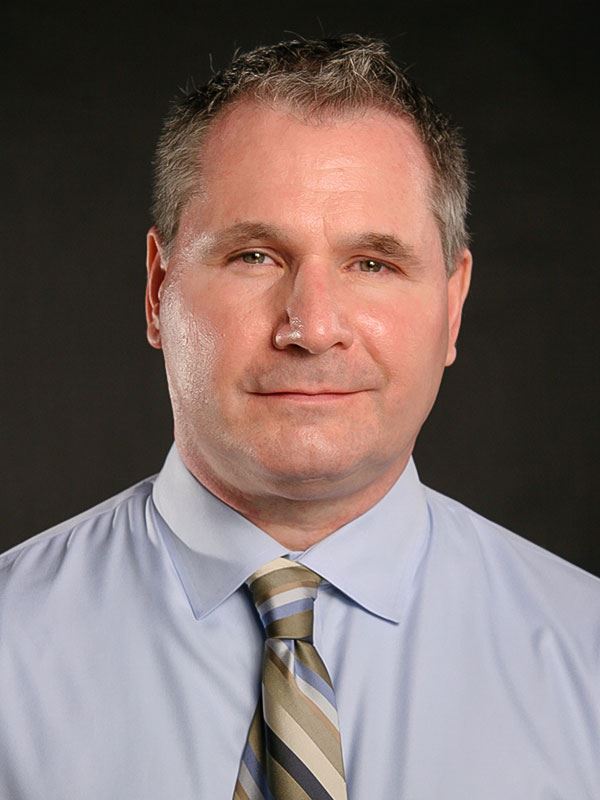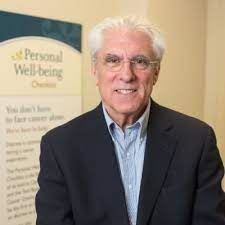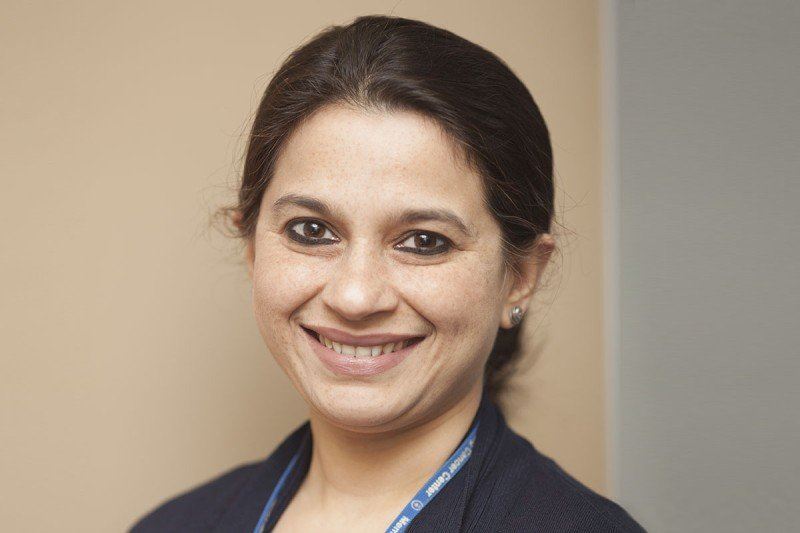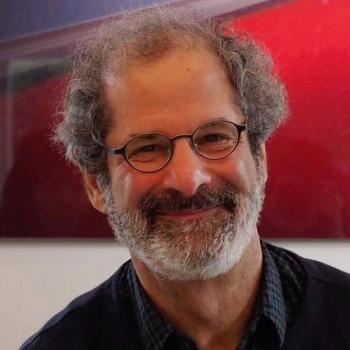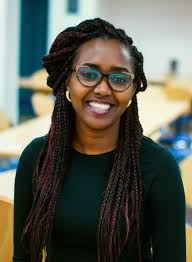- Home
- For Professionals
- ECHO program
Outline of the 2026 IPOS ECHO Pan-African Capacity-Building in Psycho-Oncology

- Introductory sessions on psycho-oncology, state of cancer in Africa, and WHO mandated capacity-building in psycho-oncology (WHO representative for Africa, Chioma Asuzu, Melissa Henry)
- Reviewing the agenda for training in Africa in discussion with the ECHO group - Cervical cancer prevention, treatment, and psychological issues (lecturers: Elizabeth Shino, South Africa; Ishak Lawal, Nigeria)
- Communication with patients and families about serious news, treatment decisions, advanced/progressive disease, prognosis, advanced care plans, and hope (Lecturers: Patricia Parker, USA; Smita Banerjee, USA ; Margeret Njoroge, Kenya)
- Addressing barriers to cancer prevention and treatment: social stigma, beliefs, health seeking behaviours, and system factors (Lecturers: Melissa Henry, Canada; Philip Odiyo, Kenya)
- Screening and assessment of distress (Lecturers: Barry Bultz, USA; Chioma Asuzu, Nigeria)
- Patient navigation and collaborative care to improve treatment adherence and quality of life (Lecturers: Margaret Fitch, USA; Nabaasa Janepher, Uganda)
- Growing psycho-oncology in Africa: Leadership, advocacy, development, implementation, and evaluation of psycho-oncology programs. (Lecturers: Matthew Loscalzo, USA; Chioma Asuzu, Nigeria)
- Conducting an initial psycho-oncology intake and diagnostic evaluation (Lecturers: Scott Nichols, USA; Elizabeth Akin-Odanye, Nigeria)
- Anxiety and adjustment disorders (Lecturers: Daniel McFarland, USA; Joyce Terwase, Nigeria)
- Depressive disorders and demoralization (Lecturers: David Kissane, Australia; Rachael Kashime, Uganda)
- Family-centred support for carer, partner, and dependent children (Lecturers: Douglas Rait, USA; Sokhna Ndiaye, Senegal
- Multidisciplinary Approach in offering holistic care (Lecturers: Matthew Loscalzo, USA ; Zipporrah Alli, Kenya)
IPOS ECHO Program Cycle 3 Opening Session
Click below to watch the recording of the opening Session of the ECHO Program Cycle 3.
The Program Executive Committee
| Dr. Chioma C Asuzu: Program Chair Prof. Chioma C. Asuzu is the current President of IPOS. She is a clinical psychologist and psycho-oncologist, and she was Head of the Department of Counselling and Human Development Studies of the University of Ibadan in Nigeria (2017-2021). She also holds joint appointment with the Department of Radiation Oncology at the College of Medicine of the university as well as the University College Hospital in Ibadan. Her teaching spans the undergraduate and post- graduate programmes. At the Department of Radiotherapy, she runs the unit of psycho-oncology with a weekly clinic thereof. She is a co-author of some books on family life education and psycho-oncology. She has given several lectures and talks on family life, adolescent education and psycho-oncology, both in national and international arenas. She is the Foundation President of the Psycho-oncology Society of Nigeria (POSON), Association for Psycho-Oncology in Africa and an executive member of the International Psycho-oncology Society (IPOS). She was the vice president for West Africa of Africa Organization for Cancer Research and Training (AORTIC, 2017-2021). She is working hard to spread the practice of psycho-oncology throughout Nigerian Universities, Hospitals, Africa and globally. |
|
Dr. Melissa Henry: Program Co-Chair
Dr. Henry is an Associate Professor in the Gerald Bronfman Department of Oncology. She is a FRQS Clinician-Scientist Senior and a psychologist in the Department of Psychology and in the Louise-Granofsky Psychosocial Oncology Program of the Segal Cancer Centre at the Jewish General Hospital. Her research program aims to better conceptualize early determinants of mental health in oncology, leading to the development and testing of interventions to improve the quality of life of cancer patients. Her work combines translational research with a major focus on advanced cancer and head and neck oncology. She developed the FACT/MBIS McGill Body Image Concern Scale — Head and Neck, part of the internationally known FACT Measurement System. She is Co-Director of the FRQS-funded Quebec Research Group in Palliative and End-of-Life Care (RQSPAL) Axis I on optimizing quality of life, a group comprising of over 200 researchers and students across the province of Quebec. As part of this research network and in collaboration with the Centre for Research and Intervention on Suicide, Ethical Issues and End-of-Life Practices, she is heading a Pan-Canadian initiative to improve clinical and research capacity to address suffering in patients requesting Medical Aid in Dying. Dr. Henry has received funding from the Canadian Institute for Health Research, the Fonds de recherche Santé - Québec, Genzyme and Roche. She is a board member of the International Psycho-Oncology Society (IPOS) and has received the IPOS Noemi Fisman Award for Lifetime Clinical Excellence. She has served on World Health Organization Committees. Her international work with IPOS and the World Health Organization involves chairing Training Academies designed to build capacity for psycho-oncology in Africa and — more broadly — for low-middle-income countries. |
|
Philip Odiyo, MSc.
Philip Odiyo is a psycho-oncologist with vast experience in psychosocial oncology. He is currently representing Africa as the Director at International Psycho-Oncology Society (IPOS. He is currently studying for a research doctoral degree at Erasmus University (Netherlands). Philip was selected for a Clinical Observership and training at Memorial Sloan Kettering Cancer Center in New York. Philip is also a fellow at the Association of Union for International Cancer Control Fellows and was awarded Naomi Stearns Fellow in 2018 for his role in developing psychosocial oncology in Kenya. Philip is currently the Secretary for Prostate Cancer Support Association in Kenya and Board Member at the Kenyan Network of Cancer Organizations; he is also the founding Chairman of Psycho-oncology Society of Kenya and the founding Vice President of the Association for Psycho-Oncology Society in Africa. Besides his work at the various cancer organizations, he is currently representing developing countries at the International Society for Sexual Medicine (ISSM). Philip has presented in several IPOS meetings in Rotterdam (2013), Portugal (2014) and Berlin (2017). He has been actively involved in IPOS Academies in Durban (2013), Marrakech (2015) and Kigali (2016). He is a reviewer in the following journals: The Breast Journal, Supportive Care in Cancer, e-Cancer Journal and Psycho-Oncology: Journal of Psychological, Social and Behavioral Dimensions of Cancer. |
|
Dr. Scott Nichols
Scott Nichols MD practises psychiatry, cancer psychiatry, and psycho oncology in California, USA. He completed undergraduate medical education at Stanford University School of Medicine, where he conducted laboratory research and coordinated clinical trials. His postgraduate medical education in Neurology and Psychiatry was completed at University of California San Francisco/Fresno, followed by a fellowship in Consult Liaison Psychiatry (Psycho Oncology/Cancer Psychiatry) at Memorial Sloan Kettering Cancer Center in New York City, USA. Dr. Nichols practises at a rural cancer center in far northern California where he has a focus on interventions for emotional trauma at Post Traumatic Stress Disorder. He is a psychiatry consultant at the City of Hope Cancer Center in Duarte California. Scott and his wife, Sharon, have supported the growth of psycho oncology in Africa since 2013. |
| Dr. Joyce Mcivir Terwase Joyce Mcivir Terwase is a Counselling/Clinical Psychologist and a Senior Lecturer at the Department of Psychology, Benue State University, Makurdi, Nigeria. She is a passionate academic and has published several academic papers in both local and international journals. Joyce Terwase has presented academic papers at both local and international conferences; International Psycho-Oncology Society (IPOS) Conference in Washington, DC, USA; the 21st Century Academic Conference at Harvard University, Boston, MA, USA; the African Organization on Research and Training in Cancer (AORTIC), Conferences at Cairo Egypt, Marrakech, Morocco and Nairobi, Kenya among others. She has co-authored papers presented at Kuala Lumpur, Malaysia and Rome, Italy, etc. She is a communications skills expert in psycho-oncology and has participated in several workshops locally and internationally; in Maputo, Mozambique, and at the UNTH, Enugu as well as at the Federal Neuro Psychiatric Hospital, Enugu. She developed interests in communications skills and Meaning Centered Psychotherapy at the Memorial Sloane Kettering Cancer Center (MSKCC) during a one-month Fellowship in New York (NY) in 2018. Other research interests in addition to the above are counselling and psychotherapy, well-being and quality of life, adolescent and adult mental health, substance and sexual abuse, etc. She is a member of a number of professional associations, including the International Psycho-Oncology Society (IPOS), African Organization on Research and Training in Cancer (AORTIC), Association of Psycho-Oncology in Africa (APOA), Association of UICC Fellows, Union for International Cancer Control, and a current vice-president II of the Psycho-Oncology Society of Nigeria (POSON), as well as a member of the Nigerian Psychological Association (NPA). She is married to Dr. Isaac Terwase. |
| Dr. Elizabeth Akin-Odanye Dr. Elizabeth Akin-Odanye is the current President of the Psycho-Oncology Society of Nigeria (POSON) and a Clinical Psychologist at the University College Hospital Ibadan. Her research focuses on psychosocial and behavioural dimensions of cancer, with emphasis on addressing factors that contribute to advanced stages of cancers and how cancer affects the overall wellbeing of the patients and their caregivers. |
| Dr. David Lounsbury David W. Lounsbury, Ph.D., Associate Professor, Epidemiology and Population Health and Associate Director, Patient-Centered Outcomes Research Training, Albert Einstein College of Medicine, New York, USA. A community psychologist and psycho-oncologist, Dr. Lounsbury’s domestic and international research is directed towards implementation of health services interventions and community-based interventions in prevention and control of chronic health illnesses, including cancer, diabetes/obesity, and HIV/AIDS, with a focus on the needs of medically underserved populations. He applies ecologically-grounded social science methodologies, such as participatory action research and system dynamics modeling, as a means to explore and assess complex, multi-level, problems in health care delivery. |
| Dr. Sharon Nichols Sharon Nichols is an accomplished coach, trainer, facilitator, and consultant in the areas of communication effectiveness, organizational culture and leadership development who has worked with clients in education, healthcare, technology, energy, pharmaceutical, management consulting, news media, and non-profit/non-government organizations. Sharon earned a master's degree at the Annenberg School for Communication, University of Southern California and a doctorate in Psychology (PsyD), Organizational Development at California School of Professional Psychology at Alliant International University. She is also a design enthusiast who has created inspiring workplace and residential spaces and is currently honing her craft through UCLA's Architecture and Interior Design program. Sharon and her husband, Scott, have supported psycho-oncology in Africa since 2013. |
| Emeka Odiaka, PMI-PMP (Jimmie Holland IPOS ECHO Program Coordinator) Emeka Odiaka, PMI-PMP is a project manager licensed by the Project Management Institute (PMI). For many years, he has initiated and managed various projects in Africa in the field of oncology. He has great communication skills and evolved experience in administration, human resource management and project management. Emeka Odiaka is the Jimmie Holland IPOS ECHO Program Coordinator. |
Meet the Program Speakers |
| Dr. Patricia A. Parker Patricia A. Parker, Ph.D., is a clinical psychologist and Member and Attending in the Department of Psychiatry and Behavioral Sciences at Memorial Sloan Kettering Cancer Center (MSK). She is Director of the Communication Skills Training and Research Program (Comskil). The Comskil Program provides education and training in communication skills for attending physicians, fellows, advanced practice providers, nurses and other clinicians. Dr. Parker has more than 20 years’ experience in research and education in psycho-oncology, with expertise in healthcare-practitioner-patient communication, healthcare decision making and quality of life in cancer patients. Dr. Parker has been principal investigator and co-investigator on funded grants in communication and cancer care, including a recent project that provides education and training to clinicians on topics related to geriatric oncology and communication. She has provided communication skills trainings to clinicians throughout the United States and in a number of other countries to enhance the communication between clinicians and patients with cancer and their families. |
| Dr. David W. Kissane Chair of Palliative Care Research, The University of Notre Dame Australia and The Cunningham Centre at St. Vincent’s Hospital in Sydney, Australia; Emeritus Professor of Psychiatry, Monash University, Melbourne, Australia; and formerly Professor of Psychiatry at Weill Medical College of Cornell University, in conjunction with Memorial Sloan-Kettering Cancer Center, New York, NY, USA. David W. Kissane, MD, is an academic psychiatrist, palliative care physician and researcher in the fields of psycho-oncology and palliative care. He currently holds the Chair of Palliative Care Research with the University of Notre Dame Australia and the Cunningham Centre at St Vincent’s Hospital, Sydney (2019-present). He has previously been Head of the Department of Psychiatry for Monash University in Australia (2012-2019), Chairman of the Department of Psychiatry and Behavioral Sciences at Memorial Sloan-Kettering Cancer Center in New York (2003-2012) and, before that, the Foundation Chair of Palliative Medicine at the University of Melbourne (1996-2003). Professor Kissane’s academic interests include studies of existential distress, group, couples and family psychotherapy trials, communication skills training, and the ethics of end-of-life care. He is best known for his work on demoralization syndrome as a specifier for adjustment disorder and major depression in the medically ill, a form of low morale and poor coping that has preceded interventions to promote meaning-based coping. His model of family therapy delivered to "at risk" families during palliative care has prevented complicated grief and prolonged grief disorder in bereavement. He has developed the Demoralization Scale, and the Shame and Stigma Scale in Head & Neck Cancer. He is the author of over 400 publications, including books exemplified by Oxford Textbook of Communication in Oncology and Palliative Care, Management of Clinical Depression and Anxiety, Psychotherapy in Cancer Care, and Bereavement Care for Families. Prof Kissane has been recognized by the International Psycho-Oncology Society with its Sutherland Award for lifetime achievement, by Cornell University with its Klerman Award for psychotherapy research, by King’s College with its Dame Cecily Saunders lecture, and in 2018, he was made a Companion in the Order of Australia for his contribution to the development of the disciplines of Psycho-oncology and Palliative Care. |
| Dr. Barry D. Bultz Barry D. Bultz, PhD, holds the Daniel Family Leadership Chair in Psychosocial Oncology and is Professor and Head, Division of Psychosocial Oncology and Professor of the Department of Psychiatry in the Cumming School of Medicine at the University of Calgary. He is the founding Director of the Department of Psychosocial Oncology, Tom Baker Cancer Centre in Calgary. Dr. Bultz is a co-founder and Past President of the Canadian Association of Psychosocial Oncology (CAPO). He served as an Invited Director of the Board of the American Psychosocial Oncology Society. From 2012 to 2014, Dr. Bultz served as President of the International Psycho-Oncology Society. He advocates for the recognition of the impact of cancer-related distress (6th Vital Sign) on patient experience and has published more than 130 peer-reviewed papers and presents frequently on the importance of screening and management of cancer related distress. His work with cancer patients has seen him receive many awards, including the Canadian Association of Psychosocial Oncology Award of Excellence, The Canadian Cancer Society (Alberta and NWT Divisions) Award of Excellence in Medicine and Health, the Queen's Diamond Jubilee Award, the Alberta Order of Excellence in 2016, and the Arthur Sutherland Award from the International Psycho-Oncology Society in 2016. He is a Fellow of the Canadian Psychological Association and in 2017 he was elected Fellow of the American Psychosocial Oncology Society — the first for a non-American. In December 2021, Dr. Bultz was appointed as an Officer of the Order of Canada. |
 | Dr. Thomas Hack Dr. Thomas Hack is a clinical psychologist, Distinguished Professor in the College of Nursing in the Rady Faculty of Health Sciences at the University of Manitoba, Canada, Senior Scientist at CancerCare Manitoba, and Director of Psychosocial Oncology and Cancer Nursing Research at St. Boniface Research Centre in Winnipeg, Canada. He was the inaugural Dorothy J. Lamont Scientist with the Canadian Cancer Society and Canadian Institutes of Health Research, and held Canadian Breast Cancer Foundation Chair in Psychosocial Oncology Research. Dr. Hack is President of IPOS, and Past-President Emeritus of the Canadian Association of Psychosocial Oncology (CAPO). He has received the CAPO Award for Research Excellence and the CAPO Award for Lifetime Achievement. He is a recipient of the Queen’s Golden Jubilee medal. |
 | Dr. Matthew Loscalzo Matthew Loscalzo, L.C.S.W., APOS Fellow is the Executive Director, People & Enterprise Transformation Emeritus Professor Supportive Care Medicine, Professor Population Sciences at the City of Hope. Until August 2021, Matthew J. Loscalzo was the Liliane Elkins Professor in Supportive Care Programs in the Department of Supportive Care Medicine and Professor in Department of Population Sciences. He is also the founding Executive Director of the Department of Supportive Care Medicine and the Administrative Director of the Sheri & Les Biller Patient and Family Resource Center at the City of Hope-National Medical Center. Professor Loscalzo was the President of the American Psychosocial Oncology Society and the Association of Oncology Social Workers. Along with James Zabora, ScD, at the Johns Hopkins Oncology Center, they created the first prospective universal clinical biopsychosocial screening program in the United States. Professor Loscalzo has held leadership positions at Memorial Sloan-Kettering Cancer Center, Johns Hopkins Oncology Center, Rebecca and John Moores Cancer Center at the UCSD and is now in his 15th year at City of Hope-National Medical Center. He has been a consultant to multiple major cancer organizations on how to build supportive care programs, implement new processes, enhance staff engagement and has developed a unique staff leadership model. In 2010, he received the Outstanding Education and Training Award Recipient from the American Psychosocial Oncology Society; 2014, the lifetime achievement award in clinical care with the Noemi Fisman Award for Lifetime Clinical Excellence from the International Psycho-Oncology Society (IPOS); 2015, the Jimmie Holland Life Time Leadership Award from the American Psychosocial Oncology Society (APOS); 2016 Harold Benjamin Innovation Award, Cancer Support Community; 2017 the recipient of the Arthur M. Sutherland Lifetime Achievement in the Field of Psycho-Oncology (IPOS); 2021 the American Psychosocial Oncology Society created the Matthew Loscalzo Outstanding Education and Training Award and City of Hope Created the Matthew Loscalzo Leadership Award Lecture Series. He has been the PI and faculty on multiple NCI funded training grants teaching health care professionals to build supportive care programs, strengths and gender-based couples programs, comprehensive automated biopsychosocial screening programs, pain management and advanced cognitive behavioural skills. He is also on the editorial boards or a reviewer for a number of professional journals and has over 100 publications and 5 books. His clinical interests are gender-based medicine, strengths-based approaches to psychotherapies, pain management, problem-based distress screening and the creation of supportive care programs. |
| Dr. Margaret I. Fitch Margaret I. Fitch, RN PhD, is a Professor (Adjunct) at the Bloomberg Faculty of Nursing, University of Toronto, in Canada. She has an extensive background in oncology nursing and psychosocial oncology. Her long-term research focus has been on coping and adaptation of patients/survivors and families across the cancer trajectory. Capturing patient perspectives and experience, psychosocial support and survivorship are specific foci for her current work. Dr. Fitch also serves as Editor-in-Chief for the Canadian Oncology Nursing Journal and teaches within the Schools of Nursing and Midwifery at the University of Rwanda, in Kigali, and at the University of Nairobi, Kenya. |
| Dr. Daniel McFarland Dr. Daniel McFarland is an assistant professor in the Department of Medicine and the Department of Psychiatry at the Hofstra School of Medicine and assistant attending at Lenox Hill Hospital/Northwell Cancer Institute in New York City. He is a medical oncologist specializing in head and neck/thoracic malignancies and a consult-liaison psychiatrist specializing in psycho-oncology. His research interests are cancer related inflammation and neuropsychiatric symptoms as well as professional development. He completed a combined residency in internal medicine/psychiatry at Rush University Medical Center in Chicago followed by hematology/medical oncology fellowship at the Icahn School of medicine at Mount Sinai. Subsequently, He completed a clinical fellowship in consultation-liaison psychiatry and a T32 supported research fellowship in psycho-oncology at Memorial Sloan Kettering Cancer Center. He has authored 71 publications (58 original research, 13 reviews, 60 first authored), 13 chapters, and 2 books. He has received NIH funding for research in cancer related inflammation and depressive symptoms. |
| Dr. Ishak Lawal Dr. Ishak Lawal is a gyneologist with interest in gynecologic oncology practising at Federal Medical Centre Birnin-Kebbi. He pioneered the gynecologic oncology practice at the Centre and is also the pioneer chairman of Kebbi branch of Nigerian Cancer Society (NCS). He founded End Cervical Cancer Nigeria Initiative (ECCNI), an NGO with the overarching goal of ensuring that Nigeria will be on the path to eliminating cervical cancer come 2030. He was recently appointed the technical lead for Kebbi State Cervical Cancer Prevention and Control Program. The program will hopefully serve as a pilot for all low resource settings struggling to implement cervical cancer prevention and control program. |
| Dr. Smita Banerjee Smita Banerjee is an Associate Attending Behavioral Scientist in the Department of Psychiatry and Behavioral Sciences at Memorial Sloan Kettering Cancer Center. Her research is in cancer prevention and control, with special emphasis on the role of communication between oncology health care providers (HCPs) and patients, and message framing for cancer risk prevention. Her recent work has primarily been contextualized in the areas of communication skills training to Dr. Banerjee’s research has been funded by the NCI, NIDA, and philanthropic organizations like T. J. Martell Foundation, Goldstein Foundation, and Geri & Me Foundation. She has published over 90 peer-reviewed manuscripts, 15 reviews and book chapters, and presented in over 100 national and international conferences. |
| Dr. Douglas Rait Douglas Rait, PhD, is Clinical Professor of Psychiatry and Behavioral Sciences, Chief of the Couples and Family Therapy Clinic at Stanford University Medical Center, and Director, Team Learning and Design, at the Stanford Byers Center for Biodesign. Following his undergraduate degree at Brown University, Dr. Rait received his PhD in Psychology (Clinical) at the University of Colorado at Boulder, was a predoctoral fellow at Harvard Medical School/Children's Hospital-Judge Baker Guidance Center, and continued as a post-doctoral fellow at Memorial Sloan-Kettering Cancer Center and Cornell Medical College. In addition, he trained in couples and family therapy at The Ackerman Institute for the Family and as a family therapy supervisor with Salvador Minuchin at Family Studies in New York City. Dr. Rait has been three times honored by the graduating residents with the Award for Excellence in Clinical Teaching in the Department of Psychiatry and Behavioral Sciences and six times as Outstanding Professor of the Year by the PGSP/Stanford Consortium. He also received the Most Inspiring Mentor Award and the Academic Faculty Teaching Award in the Department of Psychiatry and Behavioral Sciences. Dr. Rait's research interests focus on family adaptation to chronic health conditions, family-systems training in medical education, work/family balance, health technology innovation, and the influence of technology on family relationships. |
| Dr. Sokhna Ndiaye Sokhna Ndiaye is a Senegalese psychotherapist who designed and implemented the first and only Pediatric Oncology Psychosocial Support Program in Africa. She led a group of therapists and psychiatrists who provided clinical counselling and social support to children with cancer, their families and the medical staff at the University Hospital Aristide Le Dantec in Dakar. The program continues as a successful model. As a founding member of the African Psycho-Oncology Association, Sokhna is dedicated to the battle for impeccable psychological support to all cancer patients in Africa. Sokhna is also currently the IPOS Pediatric Palliative Care Committee Co-Chair. |
| Dr. Zipporah Ali Dr. Zipporah Ali is a palliative care doctor, working as the Executive Director of Kenya Hospices and Palliative Care Association (KEHPCA). She has extensive experience in leading organizations and teams: (capacity building, team building, mentoring and supervising); technical experience in public health and palliative care; promoting advocacy and policy development to improve palliative care for life-threatening illnesses such as cancer, HIV/AIDS and non communicable diseases. She also has experience at national, regional and international levels in providing technical assistance to local and international implementing organizations; strategic planning, program design, program planning, implementation and management, including financial and budget oversight and management, program monitoring and evaluation; networking, building partnerships and coalitions, and relationship management. As well as being a Board Director of the IAHPC, Dr. Ali serves on the boards of several other organizations including Hope for Cancer Kids, International Children’s Palliative Care Network, Worldwide Hospice Palliative Care Alliance and Youth Against Cancer in Kenya. She has previously served on the boards of the African Palliative Care Association (APCA) and the Kenya Cancer Association. Dr. Ali is also involved in advocacy and creating awareness of palliative care in Kenya for children and adults. In her leadership role as the Executive Director for KEHPCA, she has been instrumental in fostering strong relationships with the Ministry of Health to integrate palliative care into government hospitals. She has also been instrumental in advocating for palliative care to be integrated in undergraduate medical and nursing schools in Kenya. |
Collaborators:
INTERNATIONAL PSYCHO-ONCOLOGY SOCIETY (IPOS)

Association for Psycho-Oncology in Africa (APOA)

Friends of Psycho-Oncology in Africa (FPOA)

